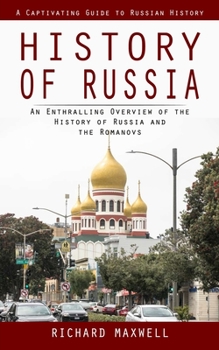History of Russia: A Captivating Guide to Russian History
The book concludes with a discussion of the rise of putin and the current state of russia. The author explores the challenges facing the country, including political instability, economic difficulties, and tensions with the west.
Throughout the book, he provides a balanced and nuanced view of russian history, highlighting both its achievements and its failures. He presents the country as a complex and diverse nation, with a rich cultural heritage and a complicated political and social history.
This first part of this book will be your guide to the fascinating history of russia and answer the following questions:
How did the tsars gain power?What was life like during the height of the russian empire?What happened when napoleon tried to invade russia?What was the great purge?What led to the dissolution of the ussr?Who was boris yeltsin?The formation of the state is a natural stage in the development of society. This is a very lengthy process, so any event that marks the transition to the state forms of life is very conditional. Primitive society could exist, guided by two basic principles that regulated social life: custom (tradition) and the right of the strong. Centuries-old traditions were rarely challenged, so there was no need for some special mechanisms to ensure their compliance. However, as primitive society gradually changed, the relations between the congeners became more and more diverse.





